MercoPress. South Atlantic News Agency
Fisheries
-
Thursday, February 15th 2007 - 20:00 UTC
Slow beginning for Argentine squid season

Argentine short fin squid (Illex argentinus) catches within the Argentine EEZ since the start of the season on February 1 are rather erratic and not very encouraging. Until last week only eight jiggers were operating in the area reports Pesca & Puertos website.
-
Thursday, February 15th 2007 - 20:00 UTC
Buenos Aires province licenses 50 fishing vessels
A total 50 vessels, less than 28 meters long, for the first time have been licensed to catch off the bay of Samborombón, an area the province of Buenos Aires government claims to be under its jurisdiction based on the Uruguay/Argentina River Plate maritime agreement.
-
Wednesday, February 14th 2007 - 20:00 UTC
Argentine efforts won't rain on Falklands fisheries celebration

Falkland Islands Legislative Council member Dr. Andrea Clausen does not believe that new amendments to Argentine Fisheries Legislation, which will make it illegal for vessels to be licensed in both the Argentine and Falklands/Malvinas zones should be “too detrimental to the private sector in the Islands.”
-
Wednesday, February 14th 2007 - 20:00 UTC
Argentina: Hake landings the lowest in the last four years
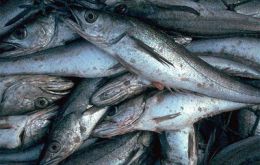
From 1 to 31 January, 15,780.7 tonnes of common hake (Merluccius hubbsi) were landed, and is the lowest number registered since 2003, according to the Agriculture, Livestock, Fisheries and Food Secretariat (SAGPyA) statistics. Last year, during the same month, landings of this species totalled 21,281.3 tonnes, while the average output registered in January during the last four years was about 23,000 tonnes.
-
Wednesday, February 14th 2007 - 20:00 UTC
Nisshin Maru Japanese whaling ship catches fire

Japanese whaling ship has caught fire near Antarctica, leaving one crew member missing and raising fears of environmental damage.
-
Tuesday, February 13th 2007 - 20:00 UTC
Deep sea giant squid flash blinding light to attack prey
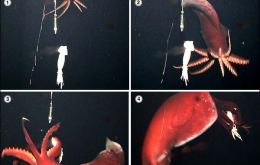
Enormous deep-sea squid emit blinding flashes of light as they attack their prey, research shows. Taningia danae's spectacular light show was revealed in video footage taken in deep waters off Chichijima Island in the North Pacific and reported by BBC.
-
Friday, February 9th 2007 - 20:00 UTC
Chile: Fishing boats detained in Peruvian waters
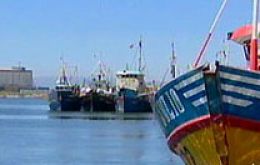
Two Chilean fishing boats were detained near the Los Palos beach in the Peruvian province of Tacna after they were caught fishing in Peruvian waters. The boats returned to Santiago on Thursday morning. The case, still under investigation, forms another chapter in the ongoing of the tug-of-war between Chile and Peru over their maritime borders.
-
Wednesday, February 7th 2007 - 20:00 UTC
Squid: good season kick off in Argentina
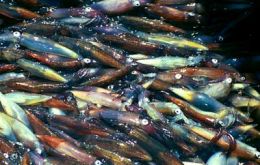
Since the commencement of the squid harvest (Illex argentinus), this past 1 February, high performances of the resource have been registered in the area located south to the parallel 44° South.
-
Tuesday, February 6th 2007 - 20:00 UTC
Argentina CFP set the maximum allowable catch at 2,500 tonnes for toothfish
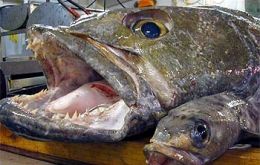
As a precautionary measure, the Fishery Federal Council (CFP) will establish a 2,500-tonnes maximum allowable catch (MAC) on toothfish (Dissostichus eleginoides) for the current year.
-
Monday, February 5th 2007 - 20:00 UTC
UN calls for better management of fish stocks
Rising demand for seafood and other marine produce will lead to a collapse of today's commercial fish stocks by 2050 unless better management is introduced, exemplifying the challenges facing Governments in a globalized world, according to a new United Nations report released Monday.
